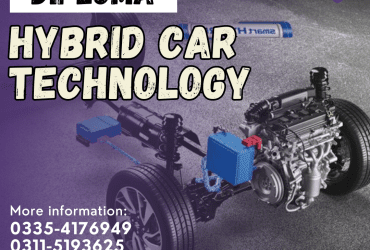Ad Details
-
Ad ID: 780326
-
Added: May 10, 2024
-
Sale Price: ₨123
-
Regular Price: ₨123
-
Location: Pakistan
-
State: Punjab
-
City: Rawalpindi
-
Phone: 03115193625
-
Views: 51
-
Website: www.icollegete.com
Description
ICTE
Admission open 2024
Basic Electronics course curriculum
Every electrical technician has to start somewhere, and that usually means tinkering with gadgets and appliances until they work again (or don’t)!?Our Basic Electronics course curriculum is designed to help you take the first steps toward turning your interest into a career.
You’ll learn how to work with various electronic devices. You’ll also learn about important electrical concepts used in consumer electronic devices and get a serious grounding in electronics theories that are absolutely essential for workplace safety and success.
Curriculum
Orientation: Learning at Ashworth
Lesson Group 1: Introduction to Electricity and Electronics
Introduction to Electricity and Electronics introduces and explains fundamental concepts, applications, terms, tools, safe operating procedures, and calculations as they relate to electronics and electricity. This course also defines Ohm’s law and identifies professional opportunities associated with the industry.
Explain common applications, components, tools, testing instruments, safety measures, and professional opportunities associated with the electronics field.
Identify key terms, notations, prefixes, symbols, and operating procedures associated with circuits, conductors, resistors, and other electronic devices and components.
Describe the properties, functions, and proper handling of various types of conductors, wire insulation, cells, and batteries.
Describe Ohm’s law and its variations, associated calculations, and practical applications.
Lesson Group 2: Electronics Equipment and Components
Electronics Equipment and Components explains the features and functionality of analog and digital multimeters and identifies the hardware that connects electrical components. This course also differentiates between capacitors and inductors and describes the role of magnetism, electromagnetism, and electromagnetic induction in industrial controls and automation devices.
Describe how analog and digital multimeters work and how they can be used to measure voltage, resistance, frequency, and current values in a circuit.
Identify key terms, notations, prefixes, symbols, and operating procedures associated with circuits, conductors, resistors, and other electronic devices and components.
Describe the properties, functions, and proper handling of various types of conductors, wire insulation, cells, and batteries.
Describe Ohm’s law and its variations, associated calculations, and practical applications.
Lesson Group 3: Semiconductors, Capacitors, and Transformers
Semiconductors, Capacitors, and Transformers describes the purpose, characteristics, and functions of semiconductors, specifically diodes and transistors. This course also covers capacitors in AC circuits and their related calculations, as well as the role of various transformers.
Examine the purpose, characteristics, and functions of a diode.
Identify several types of transistors and explain how amplification works.
Explain how to calculate reactance, frequency, and impedance in different types of AC circuits.
Describe the parts and functions of various types of transformers.
Lesson Group 4: Basic Circuits and Electronic Devices
Basic Circuits and Electronic Devices explores resonant, modulator, and detection circuits and their associated applications. This course also describes the factors, functions, characteristics, and applications of devices such as transformers, signal transmitters, output devices, relays, attenuators, and amplifiers.
Examine how a resonant circuit works, the factors that affect resonance, and how to solve resonance-related calculations.
Explain the purpose and applications of modulation and demodulation.
Identify the functions, characteristics, and applications of transformers, signal transmitters, output devices, relays, attenuators, and amplifiers.
Topics
Introduction to Electronics
Solid State Electronics
Diodes and Diode Circuits
Field Effect Transistors (JFET, MOSFET)
Bipolar Junction Transistors (BJT)
Intro to Digital Electronics
CMOS Logic Design
MOS Memory and Storage
Bipolar Logic Circuits
https://ictepakistan.com/?s=electronics














Leave a Comment
Your email address will not be published. Required fields are marked. *